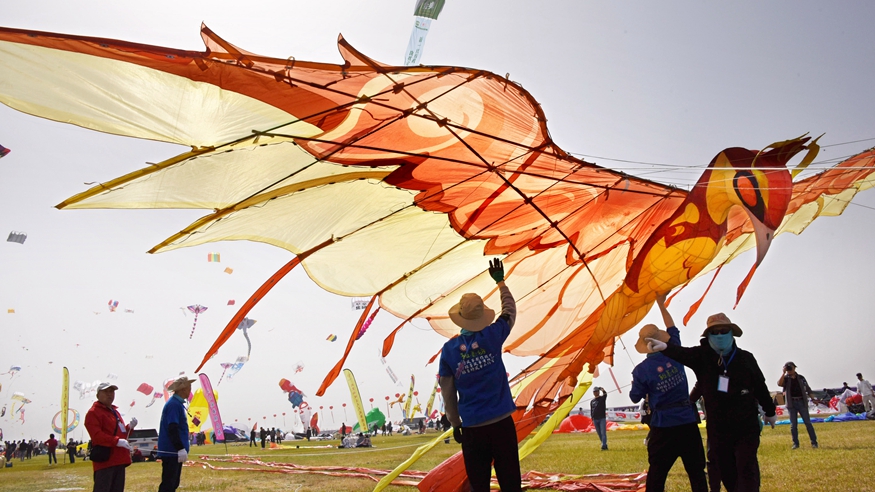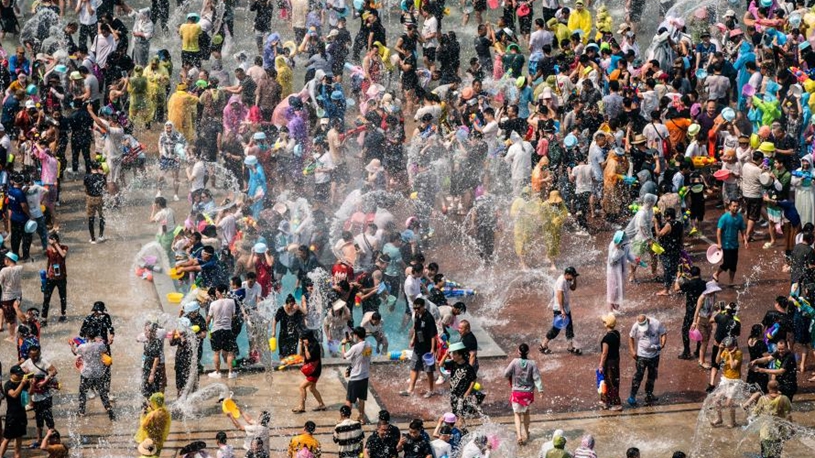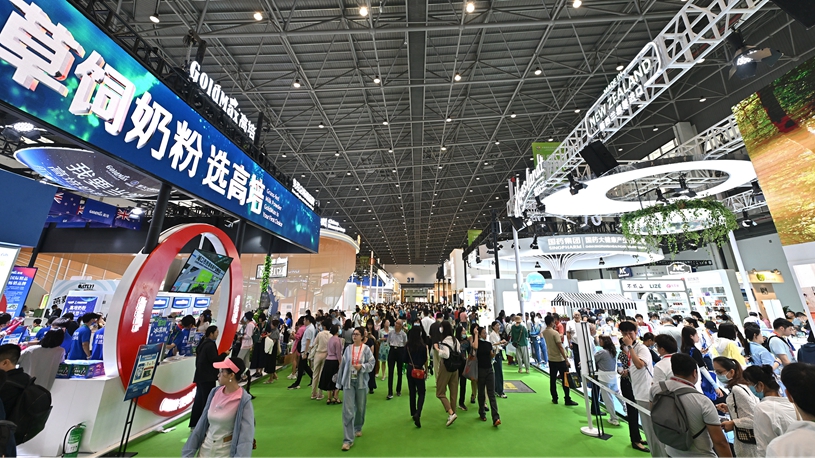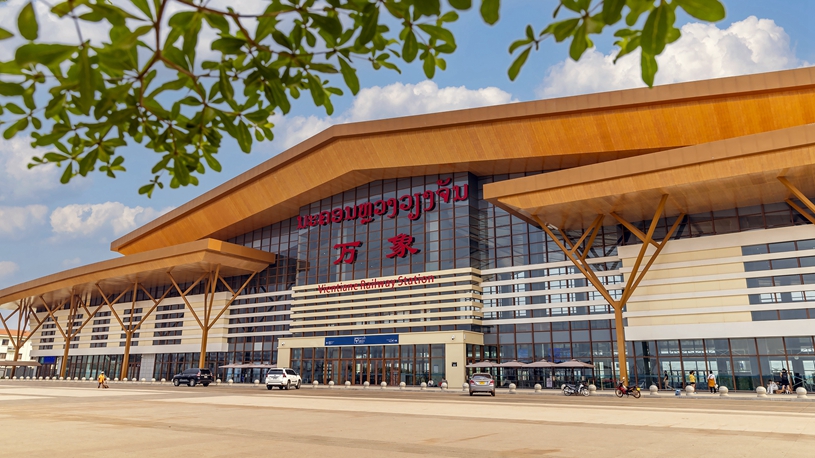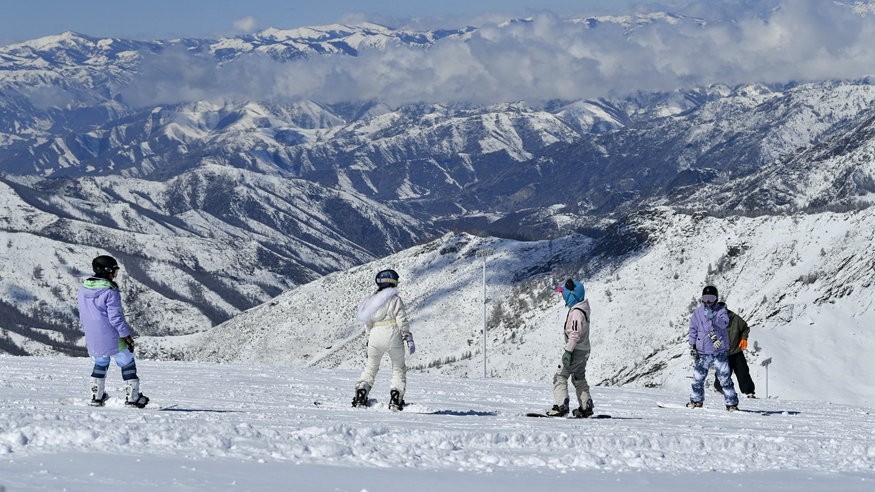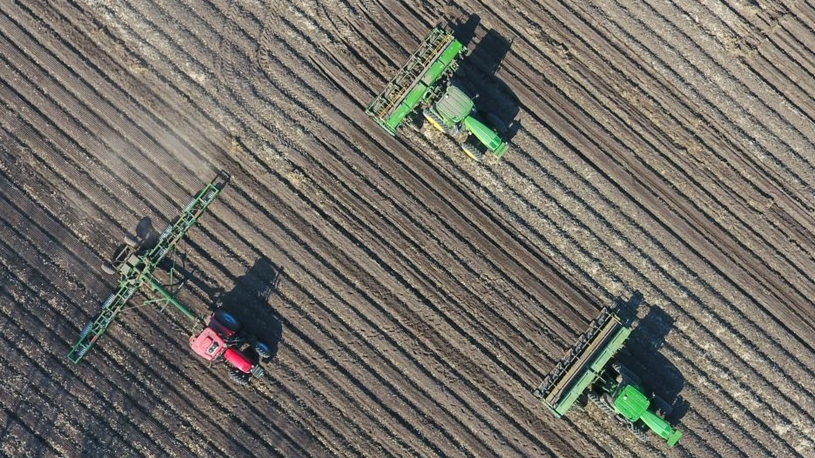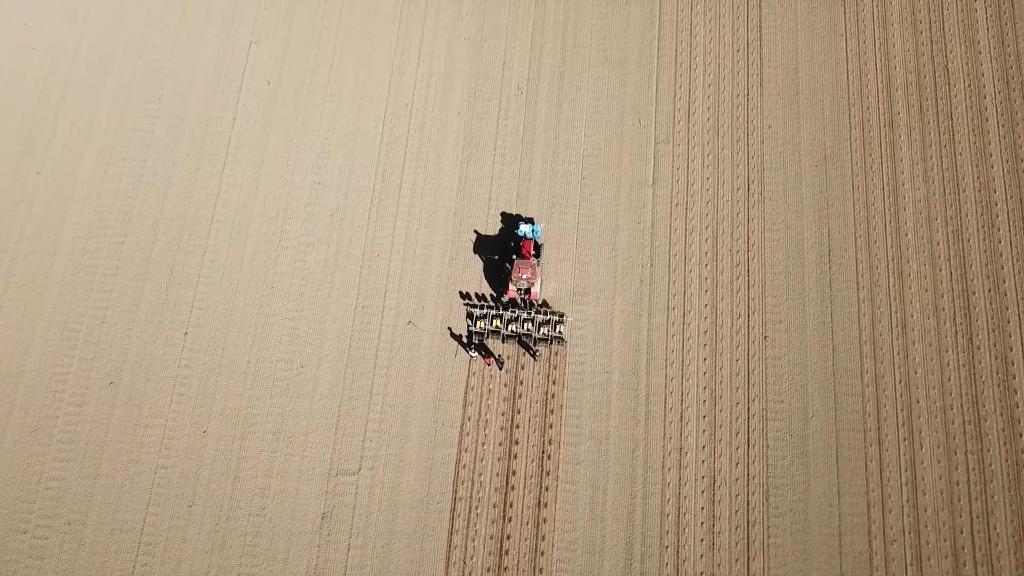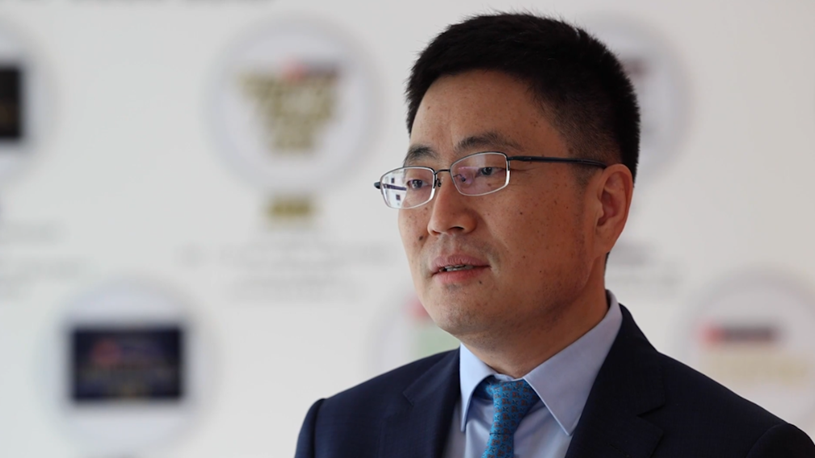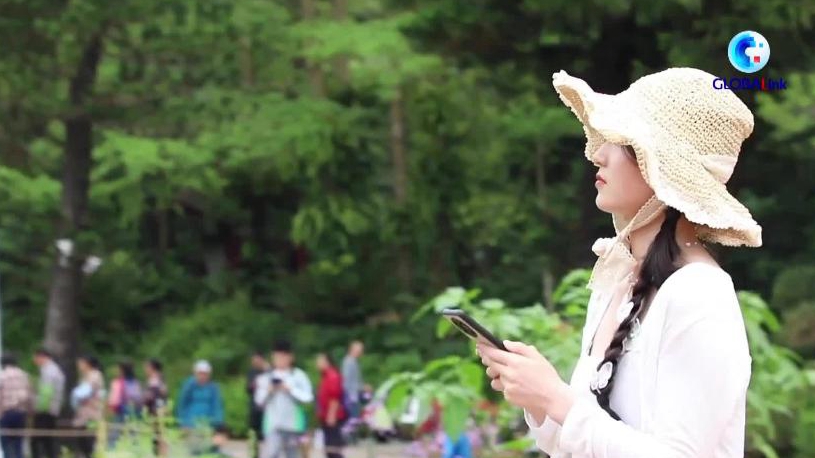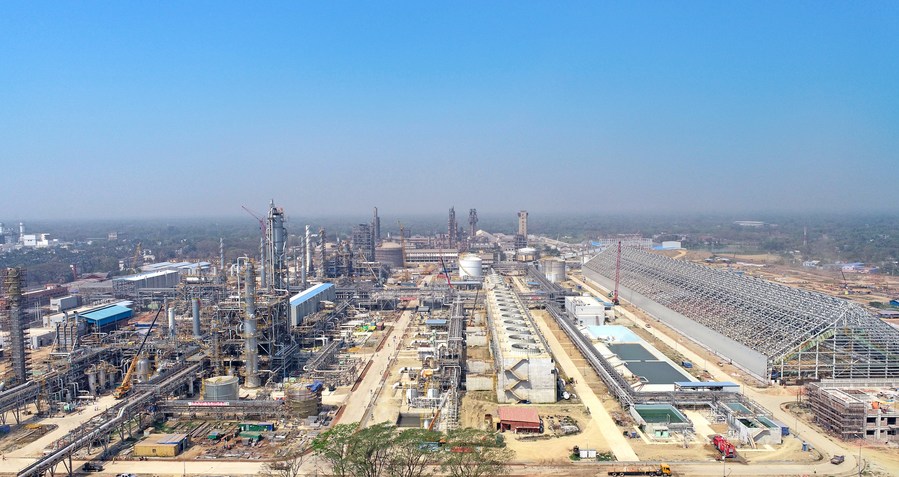
Photo taken on April 15, 2023 shows the construction site of Bangladesh's Ghorashal-Polash Urea Fertilizer Project in Narsingdi, central Bangladesh. (Xinhua)
With an estimated daily production capacity of 2,800 metric tons of urea and 1,600 metric tons of ammonia, officials said the factory will help Bangladesh meet the growing demand for fertilizer in its efforts to ensure food security.
by Naim-Ul-Karim
NARSINGDI, Bangladesh, April 17 (Xinhua) -- With machines roaring, the construction work of Bangladesh's Ghorashal-Polash Urea Fertilizer Project (GPUFP), set to be the country's largest and first-ever green fertilizer factory in South Asia, is nearing completion.
More than 850 Chinese employees from the China National Chemical Engineering & Construction Corporation Seven Ltd. (CC7), in collaboration with its Japanese partner Mitsubishi Heavy Industries (MHI), have been working round the clock to complete the mega project as scheduled.
Since the project's start in August 2020, more than 90 percent of the construction work has already been completed, GPUFP project director Mohammad Rajiour Rahman Mollick told Xinhua recently at the construction site, adding they can finish the project more than two months ahead of schedule, by December 2023.
Once completed, it will become the biggest fertilizer factory in Bangladesh as well as one of the biggest in South Asia.
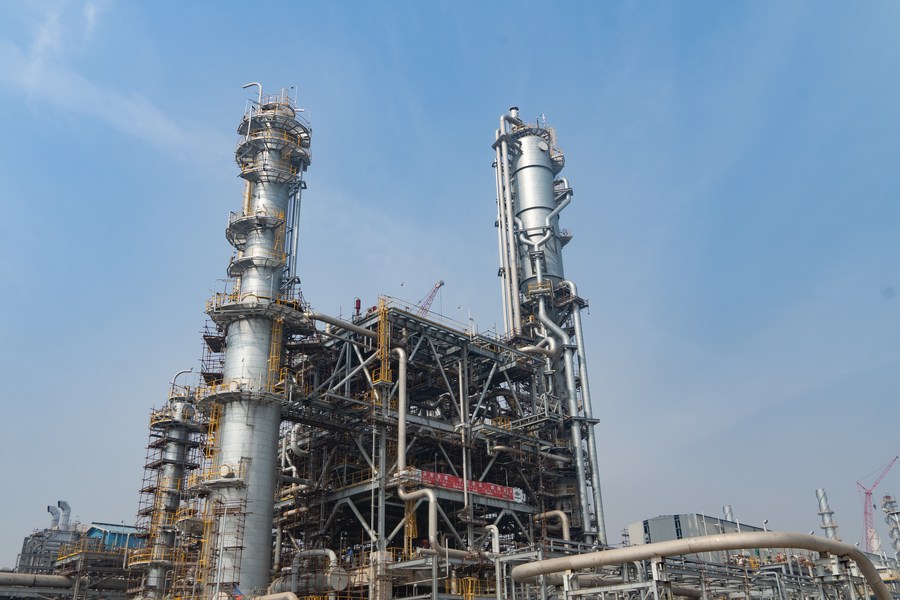
Photo taken on April 15, 2023 shows a mega carbon dioxide stripper tower installed at Bangladesh's Ghorashal-Polash Urea Fertilizer Project under construction in Narsingdi, central Bangladesh. (Xinhua)
With an estimated daily production capacity of 2,800 metric tons of urea and 1,600 metric tons of ammonia, officials said the factory, located in Narsingdi district, some 51 km northeast of the capital city of Dhaka, will help Bangladesh meet the growing demand for fertilizer in its efforts to ensure food security.
"This is a noteworthy project," Mollick said, noting that current fertilizer demand in Bangladesh is around 2.5 million metric tons per year, but this project will be able to provide about 10 lakh metric tons of fertilizer to Bangladeshi farmers every year.
Meanwhile, it will become the first-ever green fertilizer factory in Bangladesh, with no pollutants emitted into the environment.
"This is Bangladesh's first and largest fertilizer factory that captures environmental pollution. We're building an environment-friendly fertilizer factory," Mollick stressed, adding that all carbon dioxide will be captured and other liquid effluent will not mix with surface waters outside before treatment.
Mollick said that there are many projects in Bangladesh involving the Chinese government, Chinese privately-owned enterprises and Chinese businesspeople. The Chinese government is helping the Bangladeshi government in the country's development, he said.
"Our general contractor MHI Japan, CC7 China joint venture company and the Chinese workers worked here with dedication. They maintain quality and safety as well as maintain all working schedules. We're satisfied with their work," said the project director, adding that he would like to thank the Chinese company for everything they have done.
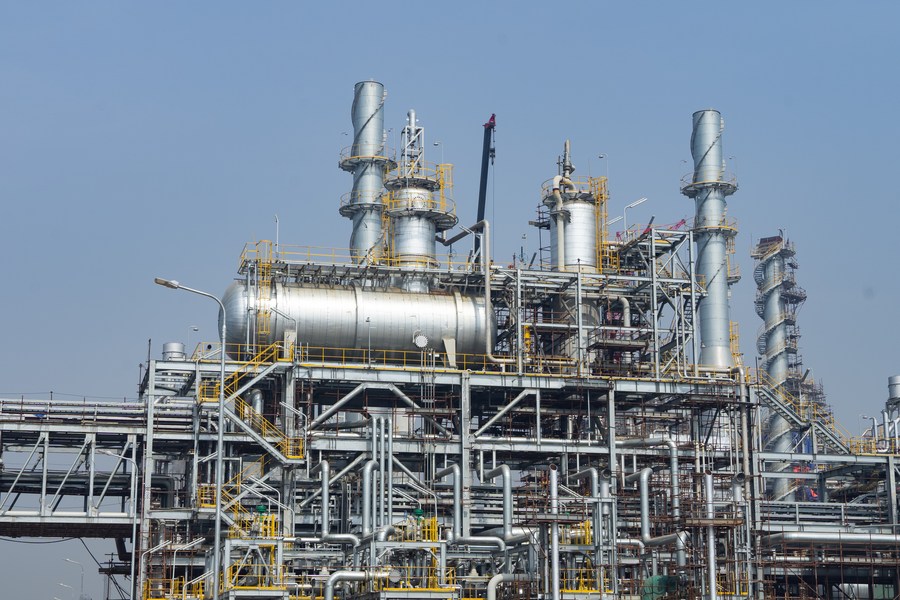
Photo taken on April 15, 2023 shows a boiler feedwater pump installed installed at Bangladesh's Ghorashal-Polash Urea Fertilizer Project under construction in Narsingdi, central Bangladesh.(Xinhua)
Md Al Amin Howlader is a project supervisor who has been working on the project since its inception.
He said that he feels very privileged to be associated with the work of such a large fertilizer factory. "I've learned a lot from working with the Chinese. The Chinese are doing world-class work here. Thousands of Bangladeshi people like me have had the opportunity to work under this Belt and Road Initiative (BRI) project."
"We want the Chinese to implement more such big projects in Bangladesh under the BRI," Howlader said.
When visiting the plant under construction and inspecting the progress of the project recently, Wu Xiangong, senior vice president of China National Chemical Engineering Group Corporation Ltd. (CNCEC), said that "on the basis of this project, we will work together to build Bangladesh's chemical industry system, so as to let the Bangladeshi people feel the deep friendship between China and Bangladesh as well as enjoy the fruitful results of cooperation."
"The CNCEC will vigorously promote the integrated development of the Belt and Road Initiative and the dream of 'Golden Bangladesh', continue to deepen the cooperation between the two countries, increase the market presence in Bangladesh, and enhance local economic development with Chinese technology, manufacturing and solutions, so as to inject Chinese power to improve local people's livelihood," Wu added. ■

